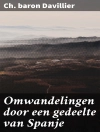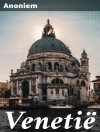In 'Letters from Switzerland and Travels in Italy, ’ Johann Wolfgang von Goethe offers a captivating blend of travel writing and personal reflection, enriched with vivid descriptions of the landscapes and cultures he encounters. This collection of letters, written during his journeys in the late 18th century, exemplifies Goethe’s lyrical prose and keen observational skills, reflecting not only the beauty of Switzerland and Italy but also his philosophical musings on art, nature, and the self. Set against the backdrop of the burgeoning Romantic movement, these letters reveal the deep emotional resonance and cultural significance of the places he visits, elevating travel literature into an art form. Goethe, a polymath and central figure of German literature, was deeply influenced by his own quest for knowledge and transformation. His travels were a means to escape societal constraints and to explore the natural and artistic worlds. The journey inspired him to articulate personal and collective experiences, entwining his literary ambitions with his philosophical inquiries, leading to a profound understanding of the human condition, which permeates his travel narratives. This book is an essential read for those who appreciate literary travelogues that combine aesthetic beauty with intellectual depth. It invites readers to embark on a vicarious journey through the stunning vistas of Switzerland and the rich cultural tapestry of Italy, while simultaneously engaging with Goethe’s introspective examination of life and existence.
O autorze
Johann Wolfgang von Goethe (1749–1832) is indisputably one of the towering figures of Western literature. A prolific German playwright, poet, novelist, and statesman, his genius spanned multiple literary forms and philosophical thought. Goethe’s influence extended beyond literature into the realms of science and art, marking him as a polymath of his time. His magnum opus, 'Faust, ’ is a testament to his literary prowess, articulating the complexities of the human experience through a dramatic narrative. His novel 'The Sorrows of Young Werther’ catapulted him to international fame, influencing the Romantic literary movement. In 'Letters from Switzerland and Travels in Italy, ’ Goethe chronicles his experiences throughout his journey, offering insights into the cultural landscape of Europe during his time. With a writing style that fuses the personal with the philosophical, Goethe’s travel writings provide not just an account of places and events but also reflect his profound engagement with nature and art. His works are characterized by an enduring search for knowledge and beauty, and he is often credited with encapsulating the ideals of the German Enlightenment and the Sturm und Drang literary movement. Goethe’s legacy persists in the realm of world literature and his works continue to be studied for their literary merit and their contribution to European thought and culture.












